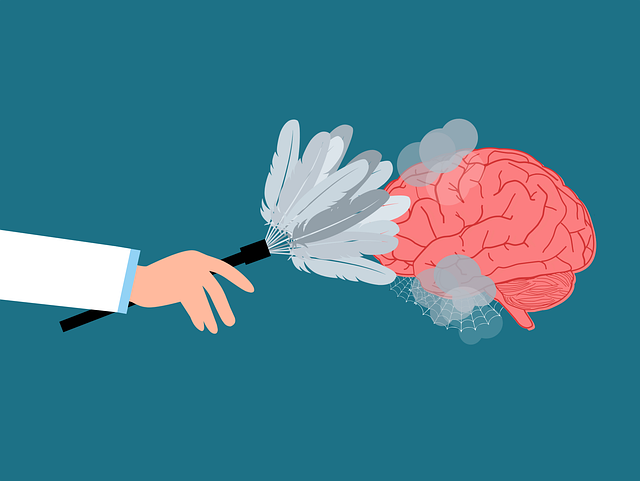Substance abuse in Lafayette is tackled through innovative approaches like Lafayette Anger Management Therapy and Mental Wellness Coaching Programs. These strategies recognize the complex nature of addiction, targeting emotional triggers (like anger) and teaching healthy coping mechanisms. Integrating anger management with mental health policies, stigma reduction efforts, and self-awareness practices creates a holistic support network that strengthens recovery. Individual therapy, community initiatives, and stress management workshops equip individuals with tools to prevent relapse, promoting long-term well-being.
In the pursuit of a healthier, safer life, understanding and mitigating substance abuse risks is paramount. This article offers a comprehensive guide to risk reduction strategies, delving into critical aspects such as anger management, evidence-based therapies, supportive networks, and relapse prevention. By exploring these key areas, individuals like those seeking Lafayette Anger Management Therapy can navigate the path to recovery more effectively, fostering long-term sustainability and a reduced risk of future relapses.
- Understanding Substance Abuse and Its Risks
- The Role of Anger Management in Risk Reduction
- Evidence-Based Therapies for Effective Change
- Building a Supportive Network for Recovery
- Relapse Prevention Strategies and Long-Term Sustainability
Understanding Substance Abuse and Its Risks

Substance abuse is a complex issue that goes beyond mere irresponsible behavior; it’s a chronic condition impacting individuals’ mental and physical health, relationships, and overall well-being. Understanding this problem is crucial for implementing effective risk reduction strategies. Substance abuse can lead to severe consequences, including addiction, health complications, legal issues, and social isolation. Recognizing the signs and causes is the first step towards prevention. Many factors contribute to substance abuse, such as genetic predisposition, environmental influences, trauma, or mental health disorders like anxiety and depression.
In Lafayette, Anger Management Therapy has emerged as a valuable tool in addressing this challenge. This specialized approach focuses on identifying and managing intense emotions, particularly anger, which is often linked to substance abuse triggers. By learning healthy coping mechanisms and developing resilience through therapy, individuals can build emotional well-being promotion techniques to resist turning to substances for temporary relief. Additionally, Mental Wellness Coaching Programs Development offers structured support to enhance mental wellness coaching, empowering individuals to lead fulfilling lives free from the grip of substance abuse.
The Role of Anger Management in Risk Reduction

Anger management plays a crucial role in risk reduction strategies for substance abuse. It targets the underlying emotional triggers that often lead to harmful behaviors, offering individuals tools to cope healthily. By learning to recognize and manage anger, people can avoid escalating situations that might otherwise prompt them to turn to substances as a coping mechanism. Lafayette Anger Management Therapy provides effective techniques to help clients understand their anger, develop healthier responses, and improve their overall well-being.
Integrating anger management with other aspects of treatment, such as self-esteem improvement and depression prevention, can significantly enhance the effectiveness of risk reduction efforts. Mental Health Policy Analysis and Advocacy also highlights the importance of accessible and quality anger management programs as part of a comprehensive mental health strategy. This holistic approach acknowledges that addressing emotional regulation is vital for long-term recovery and improved mental health outcomes.
Evidence-Based Therapies for Effective Change

Evidence-Based Therapies have proven to be powerful tools in the fight against substance abuse. One such effective approach is Lafayette Anger Management Therapy, which focuses on identifying and managing anger—a common trigger for addictive behaviors. By learning coping strategies to regulate emotions, individuals can reduce the urge to turn to substances as a means of stress relief or emotional escape. This therapy encourages self-awareness and provides practical techniques to navigate challenging situations without resorting to addiction.
Incorporating Mental Wellness Journaling Exercise Guidance can complement these evidence-based practices. Journaling allows individuals to introspect, track progress, and express emotions safely. It aids in identifying triggers, understanding personal motivations for change, and building resilience. Additionally, by documenting successes and setbacks, one can develop a sense of accomplishment, fostering motivation to maintain sobriety. In conjunction with therapy, these tools create a holistic approach, addressing the physical, emotional, and psychological aspects of recovery, including Mental Illness Stigma Reduction Efforts, which are vital for creating supportive environments that encourage open discussions about addiction and mental health.
Building a Supportive Network for Recovery

Building a supportive network is an integral part of any substance abuse recovery journey. This includes fostering strong relationships with family, friends, and peers who can offer encouragement, accountability, and understanding throughout the process. For individuals seeking recovery, having a reliable support system can significantly reduce the risk of relapse. Mental health professionals play a crucial role in teaching clients how to identify and engage their support network effectively, ensuring they have a safe space to discuss challenges and celebrate milestones.
In Lafayette, Anger Management Therapy has been an innovative approach, not only addressing substance abuse but also providing tools for managing anger and improving interpersonal relationships. This holistic method recognizes the interconnectedness of mental health and social connections. Moreover, Mental Health Policy Analysis and Advocacy can contribute to a broader support system by pushing for policies that reduce the stigma surrounding mental illness, creating a more accepting environment for those in recovery. By combining individual therapy with community-based initiatives, a robust network of support can be established, fostering a better chance of long-term recovery.
Relapse Prevention Strategies and Long-Term Sustainability

Relapse prevention strategies play a pivotal role in fostering long-term sustainability for individuals recovering from substance abuse. These strategies equip individuals with the tools and skills to navigate triggers, manage cravings, and maintain their progress. A comprehensive approach may involve cognitive-behavioral therapy, mindfulness practices, and stress management techniques tailored to their unique needs. For instance, Lafayette Anger Management Therapy can be instrumental in addressing underlying anger issues that might contribute to relapse.
Incorporating mental health education programs designed for substance abuse recovery further strengthens this process. These programs not only enhance understanding of addiction but also promote self-awareness and coping mechanisms. Additionally, mental wellness coaching programs focused on developing resilience, setting goals, and maintaining motivation can significantly contribute to long-term success. Stress management workshops organized by support groups or treatment centers equip individuals with practical tools to handle stressors that may trigger cravings, ensuring a more robust foundation for sustained recovery.
Substance abuse poses significant risks, but with comprehensive risk reduction strategies, recovery is achievable. By understanding the underlying causes, such as anger management issues, and utilizing evidence-based therapies, individuals can break free from addiction. Building a strong support network and implementing relapse prevention techniques are crucial for long-term sustainability. Lafayette Anger Management Therapy offers specialized help, contributing to a holistic approach that fosters lasting change. With dedicated resources and a supportive community, overcoming substance abuse becomes an attainable goal.













